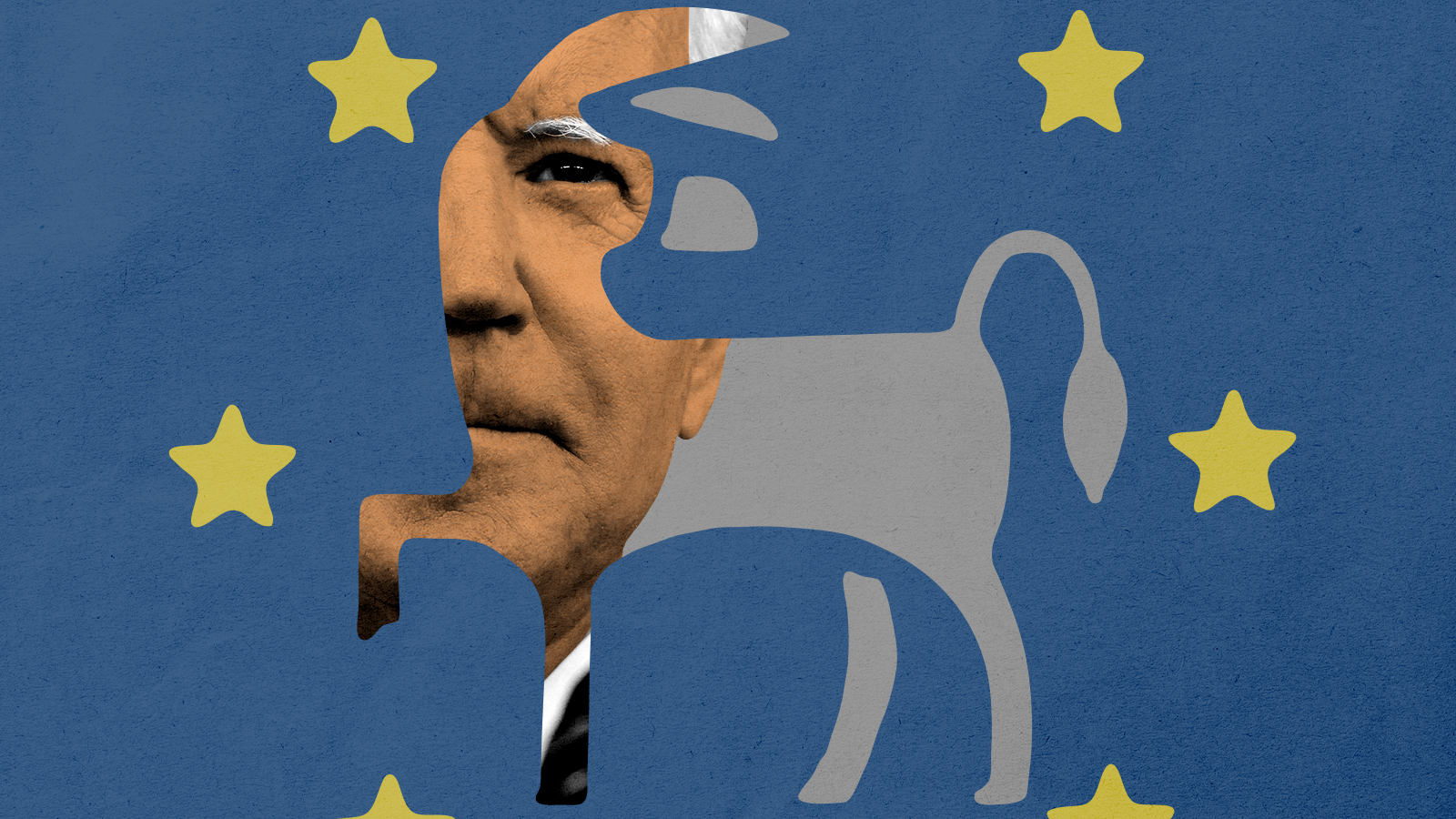Partisanship is up, but party strength is decimated. Can Biden adapt?


A free daily email with the biggest news stories of the day – and the best features from TheWeek.com
You are now subscribed
Your newsletter sign-up was successful
There's an old and possibly misguided aphorism in politics: "Democrats fall in love. Republicans fall in line." President Biden's plan for passing the imperiled $3.5 trillion reconciliation bill apparently relies on an entirely different dynamic: He expects Democrats to fall in line.
"He's not gonna beg," an anonymous official tells Axios. "His view is: 'You're Democrats, and you're with your president or you're not.'"
Biden's attitude is hardly surprising. He has always been a party man, having spent half a century in service of country and party as a senator, vice president, and now president. Along the way, he often fell in line himself, even for policies he thought were misguided or flawed. As Axios notes, the president is "from a generation of politicians for whom party loyalty is automatic." Now Biden expects the same, including from a younger generation.
The Week
Escape your echo chamber. Get the facts behind the news, plus analysis from multiple perspectives.

Sign up for The Week's Free Newsletters
From our morning news briefing to a weekly Good News Newsletter, get the best of The Week delivered directly to your inbox.
From our morning news briefing to a weekly Good News Newsletter, get the best of The Week delivered directly to your inbox.
That might be a mistake. For all the talk about America's increasing political polarization, the parties themselves have grown weak. "The defining characteristic of our moment is that parties are weak while partisanship is strong. What we've known about party organizations has long indicated that they are weak, with little to hold over candidates or officeholders," Marquette University's Julia Azari wrote in 2016. She added: "Voters do not have to listen to elite signals. Elites do not have to listen to each other's signals. Parties have been stripped (in part by their own actions) of their ability to coordinate and bargain."
That weakness is magnified by Democrats' thin margins in Congress. A huge wild card in the reconciliation bill negotiations is Sen. Kyrsten Sinema (D-Ariz.), who appears more interested in being a "maverick" than in keeping her party happy. She's been a vocal opponent of ending the filibuster and in March gave an ostentatious thumbs-down vote to creating a $15 minimum wage, which has been a longtime Democratic priority. She isn't all that popular with her state's Democratic voters and doesn't show many signs of caring. In a 50-50 Senate, though, efforts to pass reconciliation rest entirely on Sinema falling in line.
One of the big questions about Biden's presidency has been whether he can adapt to a less cohesive political environment than his decades-long heyday in the Senate. The next few days will probably give us the answer.
A free daily email with the biggest news stories of the day – and the best features from TheWeek.com
Joel Mathis is a writer with 30 years of newspaper and online journalism experience. His work also regularly appears in National Geographic and The Kansas City Star. His awards include best online commentary at the Online News Association and (twice) at the City and Regional Magazine Association.
-
 6 exquisite homes with vast acreage
6 exquisite homes with vast acreageFeature Featuring an off-the-grid contemporary home in New Mexico and lakefront farmhouse in Massachusetts
-
 Film reviews: ‘Wuthering Heights,’ ‘Good Luck, Have Fun, Don’t Die,’ and ‘Sirat’
Film reviews: ‘Wuthering Heights,’ ‘Good Luck, Have Fun, Don’t Die,’ and ‘Sirat’Feature An inconvenient love torments a would-be couple, a gonzo time traveler seeks to save humanity from AI, and a father’s desperate search goes deeply sideways
-
 Political cartoons for February 16
Political cartoons for February 16Cartoons Monday’s political cartoons include President's Day, a valentine from the Epstein files, and more
-
 Big-time money squabbles: the conflict over California’s proposed billionaire tax
Big-time money squabbles: the conflict over California’s proposed billionaire taxTalking Points Californians worth more than $1.1 billion would pay a one-time 5% tax
-
 The ‘mad king’: has Trump finally lost it?
The ‘mad king’: has Trump finally lost it?Talking Point Rambling speeches, wind turbine obsession, and an ‘unhinged’ letter to Norway’s prime minister have caused concern whether the rest of his term is ‘sustainable’
-
 Did Alex Pretti’s killing open a GOP rift on guns?
Did Alex Pretti’s killing open a GOP rift on guns?Talking Points Second Amendment groups push back on the White House narrative
-
 Washington grapples with ICE’s growing footprint — and future
Washington grapples with ICE’s growing footprint — and futureTALKING POINTS The deadly provocations of federal officers in Minnesota have put ICE back in the national spotlight
-
 Trump’s Greenland ambitions push NATO to the edge
Trump’s Greenland ambitions push NATO to the edgeTalking Points The military alliance is facing its worst-ever crisis
-
 Why is Trump threatening defense firms?
Why is Trump threatening defense firms?Talking Points CEO pay and stock buybacks will be restricted
-
 The billionaires’ wealth tax: a catastrophe for California?
The billionaires’ wealth tax: a catastrophe for California?Talking Point Peter Thiel and Larry Page preparing to change state residency
-
 Trump considers giving Ukraine a security guarantee
Trump considers giving Ukraine a security guaranteeTalking Points Zelenskyy says it is a requirement for peace. Will Putin go along?
